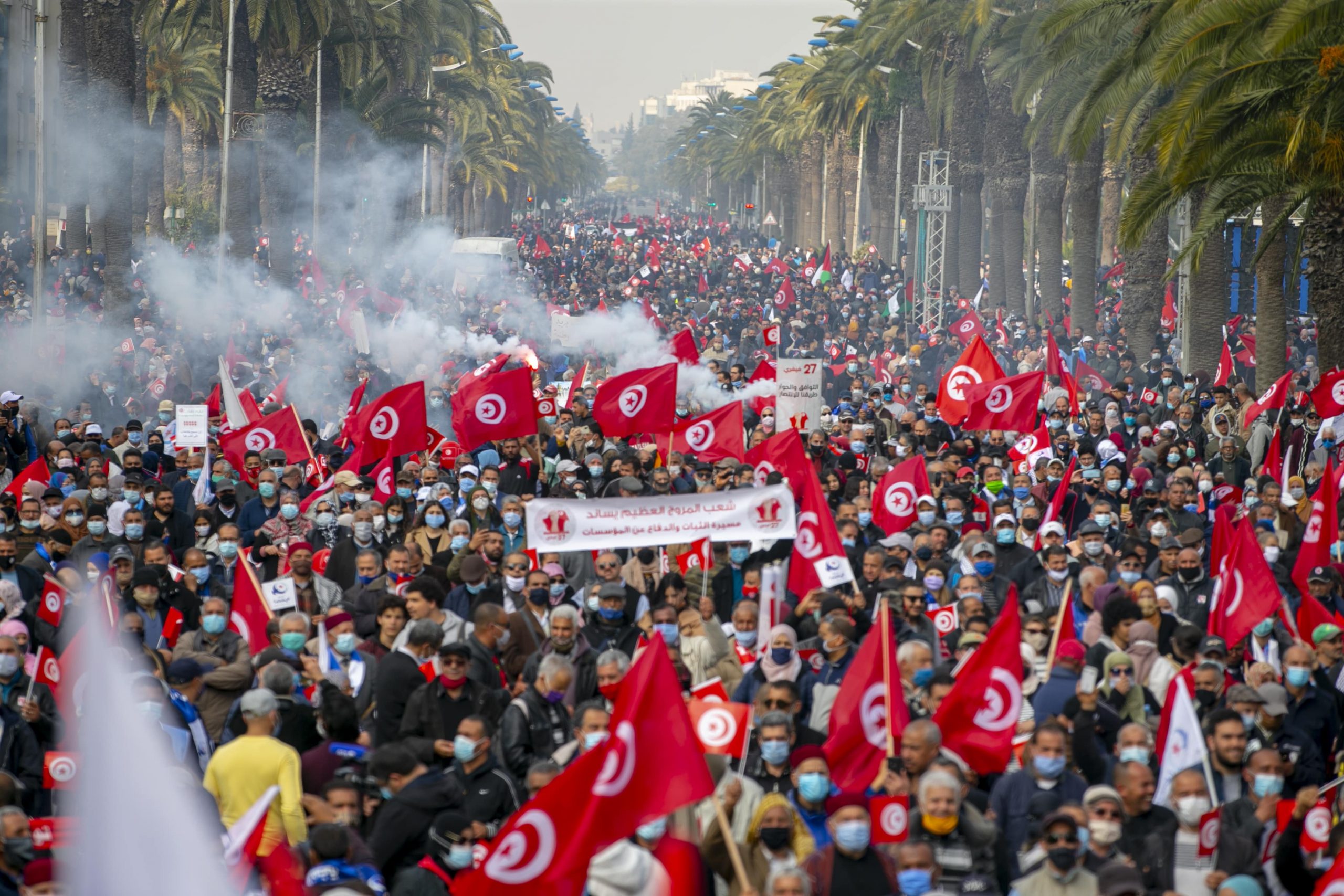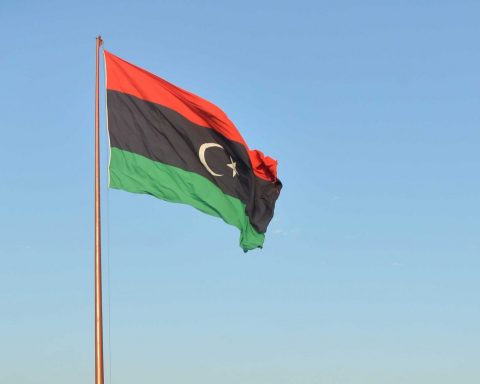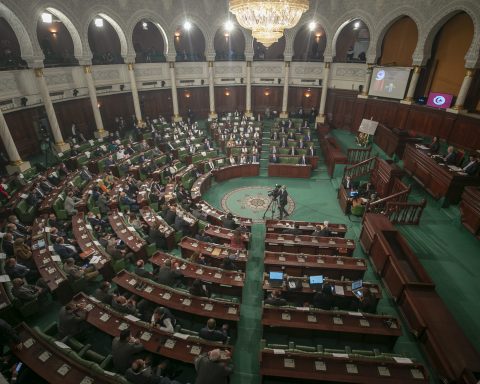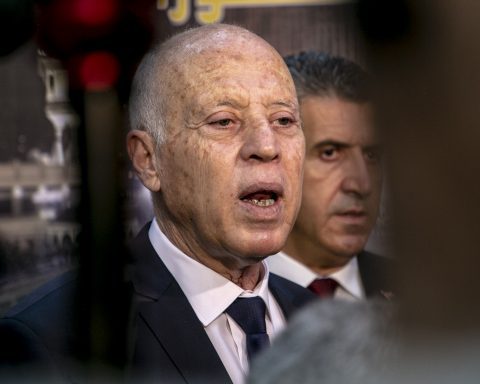The Moroccan Islamist Justice and Development Party (PJD) suffered a severe defeat on September 8 in parliamentary elections. A political party that led coalition governments from 2011 to 2021, in the aftermath of the first wave of Arab uprisings in 2011. The PJD has chosen a strategy of legality and transparency in the conflictual relationship with the de facto power in Morocco (the Palace).
Like the Movement of Society for Peace (MSP) in Algeria, the Ennahda Movement in Tunisia, the Justice and Construction Party (JCP), also known as Hizb Al-Adala Wal-Bina, in Libya, and the National Rally for Reform and Development (Tewassoul) in Mauritania, each party has its own vision and partisan roadmap according to the state’s political and economic imperatives and socioeconomic variants.
Surprisingly, the main legalist Islamist parties in Maghreb countries had to fight the authorities for a long time before they could be recognized as a legitimate political force. In Algeria, for instance, the MSP came out following the 1989 political pluralism launched by President Chadli Bendjedid. However, the MSP faced tough political and organizational rivalry from the ex-Islamic Salvation Front (FIS), which was more popular than the MSP among large Islamist sympathizers and voters in the country.
Ray of hope
Thus, in the post-first wave of Arab uprisings in 2011, Algerian legalist Islamists chose to be a credible opposition party to the authorities and an audible voice to the voters, after a decade of domestication by the Algerian authorities. Yet, the authorities infiltrated the entire party and filtered the Islamist leaders who are today the MSP leader and are trying tirelessly to be the Islamists’ vocal voice in the ongoing party struggle post-June 12 parliamentary elections and November 27 municipal elections. The MSP is facing a serious challenge from the “Neo-Islamist” party rival of Al-Bina Al-Watani Party (National Construction) that emerged in the aftermath of Algeria’s presidential election of December 12, 2019.
This leads us to better understand the state of denial that the Islamist leaders in the Maghreb region are suffering from. They have been soft as messengers on the one hand and incoherent with their voters’ main demands on the other. A contradictory strategy that fosters a sense of deep political identity crisis among Islamist leaders. One is noticing this dynamic of animosity in the ongoing power struggle in Tunisia following President Kaïs Saïed’s July 25 constitutional coup, and how Ennahda leaders have been dealing with the political crisis.
One could argue, however, that the Islamists got caught between the anvil of the authorities and the hammer of the voters. In other words, they are not fully leading nor governing like the western media like to present them, like with the Ennahda Movement in Tunisia and PJD in Morocco. In fact, both parties led national coalition governments but never fully governed or applied their political program by establishing any public policy in their respective countries. On the contrary, they were scapegoated by either local powers, like in Morocco, where it is in the hands of the Palace, or in Tunisia, where it has shifted from new political actors to the deep state, the direct interference of regional superpowers, or the anti-Arab Uprisings camp.
Strategy for the domestication process
Thus, the late President Abdelaziz Bouteflika’s policy of divide-and-rule in Algeria had a strong impact on former Minister and Senator Dr. Amar Ghoul, who was actively involved in the late President’s alliance and policies. For observers, his political party, the Rally for Hope for Algeria (TAJ), was the last tactical move of the late President Abdelaziz Bouteflika’s entourage and intelligence services in their covert battle against the Islamists to “bury” them with ease, thus stabbing the final nail in the political coffin.
Hence, the Islamists in Algeria, like their brothers in Morocco and, to a certain extent, the leader of Ennahda Movement, underestimated the country’s radical secular Francophone elite, its well-off bourgeois class, the nationalist Arabophone lobbies in the media, the high-ranking education system, the public administration, as well as the business community bosses that have emerged through the late president’s oligarchic system via financial channels. Compared to what is happening in Algeria, Tunisia, Morocco, Egypt, and less in Libya and Mauritania because of conservatism and its sacrosanct societal values, it was a solid rampart to any westernization values or even apparent secularism imperatives.
In general, the society of countries like Algeria, Tunisia, Egypt, and Morocco are socially conservative and deeply traditionalist, except where solid secularist values and post-modern social behavior tend to surface in the urban areas of large coastal cities in Algeria. However, this is not the case for Libya and Mauritania, where the Islamists’ discourse stays the entire political course, despite the conflictual relations with the military in Mauritania, or even if it enters into an ideological war like in Libya after the victory of the Islamists in the legislative elections in 2012, which led to a bloody civil war in 2014.
Elsewhere, the MSP in Algeria was hit very hard by the surprise effect of the military soft-coup against the late Abdelaziz Bouteflika in April 2019. Today, the leaders of the party are trying to review their strategy by devising new tactics that match with post-2019 Hirak’s political and societal ramifications, and with President Abdelmadjid Tebboune’s political reforms. The legalist Islamists in Algeria are leaving the conflictual relation in the country’s political equation between the “religious” and the military. A plausible scenario has been made in Egypt, accompanied with a plausible scenario that is in the process of being seen in Tunisia following the July 25 constitutional coup. Oddly, in Tunisia, the constitutional “coup” was led by the president himself, who was a constitutional law professor.
Currently, authorities in Algeria, Morocco, Mauritania, and in Tunisia, in light of Tunisian President Kaïs Saïed’s July 25 coup, have basically found an opportunity to empty the Islamistsʼ message, and demystifying their role in their countries’ conventional political spectrum — whether with their electoral base or their ideological adversaries.
Political accountability and responsibility
In the aftermath of the September 8 election, the PJD experienced a political catastrophe where the PJD lost 90 percent of its seats in parliament. The MSP in Algeria continues in its rupture defense strategy with the new authorities. This strategy will be tested in the November 27 municipal elections. Whereas, the JCP in Libya is in the trajectory of entering the power struggle in the post-December 24 general elections. Tewassoul in Mauritania is in a neutral context because of the uncertainty witnessed in local politics.
Thus, Islamists in the Maghreb region are in a process of demystification and post-clandestine hostility with local authorities. In other terms, legally and politically, they have moved from sociologist dynamics to real political science reality. Therefore, they can no longer capitalize on the victimhood argument. Islamist leaders have been looking at the Justice and Development Party (AK Party) in Turkey as a potential model. However, Turkey is a country whose cultural and societal imperatives have been swinging between the values of the West and the traditions of the East for decades.
The AK Party in Turkey, on the other hand, has found a political identity based on western democratic and social-liberal economic values and semi-capitalism to achieve their party’s strategic objectives and establish itself as a real physical political force in the country and, therefore, in the region.
The PJD did become a normal political party in a sense of creating division and anger with the voters, like any conventional party, on thorny issues that politicians do not want to touch upon. However, this is not the main reason for the PJD’s fall, as ex-Premier Saadeddine Othmani did not show his teeth when it came to foreign policy choices and objectives of the country’s regional and international determinants, especially in the case of the Abraham Accords with the Jewish state, despite knowing Othmani did not have any power in this domain, which is exclusively in the hands of the Palace. Other domestic policies, such as the legalization of cannabis and the inclusion of the French language in the Moroccan curriculum education system, have further fragmented the country’s conservative base.
Besides the PJD and the Ennahda Movement, which led mosaic governments without really governing, both political parties managed to realize that politics is not just rhetorical speech and some dose of political realism. It is also accountability and responsibility. But, at the end of the day, politics need bold decisions and actions to impose its partisan identity in a segmented and divided society.














